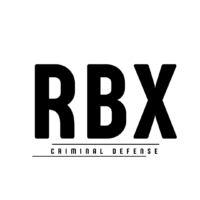What are Drug Charges?
Like most other states, in California, drug charges include every step in the “drug trade,” including:
- Manufacturing activity includes planting and cultivating marijuana, possessing items used to manufacture illegal drugs, and manufacturing illegal drugs.
- Transportation of controlled substances for sale is illegal and punishable as a felony. It is also illegal to move a usable amount of a drug for sale any distance.
- Possession of controlled substance is illegal, whether for personal use or “with the intent to sell.” Exception: One ounce or less of marijuana is legal by persons over 21 years old under Health & Safety Code Section 11357.
- “Under the Influence” means a person’s nervous system, brain, or muscles are appreciably affected by a drug. Using the proper dose of prescription drugs is a defense to under the influence charges.
- Driving while impaired by a controlled substance is illegal, even if you have a valid prescription. You can be too impaired to drive even if you take the prescribed dosage.
Punishments for Drug Charges
Punishments for drug charges include up to one year of jail (misdemeanor) and up to 3 years of prison (felony). Some crimes involving controlled substances, such as transportation for sale, have a maximum prison sentence of 5 years.
Additional Punishments
Punishments also include fines, forfeiture of cash seized by law enforcement, suspension or revocation of driver’s license, 3-5 year probation, entering and completing a residential treatment program, and a requirement to participate in clean and sober court. Punishments vary depending on the facts of the case.
Clean and Sober
Clean and sober court is often required for a conviction of simple possession or under the influence. Restrictions include:
- No using drugs or alcohol, submit to regular testing;
- Prohibited from owning any weapons;
- Submit to search and seizure of property and residence, and random drug testing;
- No gambling until the defendant has paid all probation fees and restitution;
- Do not socialize with drug-using friends or anyone on probation or parole.
Defenses Against Drug Charges
Substance was not a Drug
It is not illegal to possess a substance that looks like drugs. Law enforcement may arrest a person suspected of possessing a drug. But the prosecutor must prove that the substance is an illegal drug in order convict the defendant. The prosecutor will test the substance to determine whether it is an illegal drug.
Illegal Search
The 4th Amendment guarantees the right to be free from unreasonable search and seizure. A search without a warrant or an established warrant exception is unreasonable.
Unlawful Warrant
If a judge issues a warrant, the search is presumptively reasonable. However, even a warrant issued by still be invalid in some cases. This includes:
- If law enforcement misled the judge;
- The facts in the warrant do not constitute probable cause;
- The facts in the warrant are false; or
- The warrant fails to specify which areas and objects that law enforcement can seize and search.
Prescription
Prescription drugs are controlled substances and therefore illegal in California. One exception is when the person possesses a valid prescription from a licensed physician. However, possession of a valid prescription is not a defense to charges of selling, transporting, manufacturing, or driving under the influence of an illegal drug.
Not a Usable Amount
A usable amount is a quantity that is enough to be used by someone as a controlled substance. Useless traces or debris are not usable amounts. On the other hand, a usable amount does not have to be enough, in either amount or strength, to affect the user.
Entrapment
Entrapment occurs when a law enforcement officer engages in conduct that would cause a normally law-abiding person to commit the crime. The defendant has the burden of proving an entrapment defense by a preponderance of evidence, or more likely than not.
Reduced Charges
In some cases, the prosecutor will offer to resolve a drug case for a lesser charge. One common example is a guilty or no contest plea to simple possession charges. In some cases, the prosecutor can also reduce the charges from a felony to a misdemeanor. The prosecutor is more likely to reduce the charges if there is a significant technical flaw in their case. They can also reduce the charges if there are other mitigating circumstances. In a DUI case, the prosecutor may agree to a reduced charge (wet and reckless) if the blood alcohol level is at or below the legal limit.
For some charges, the judge can reduce the charges from a felony to a misdemeanor. See Penal Code § 17(b).

